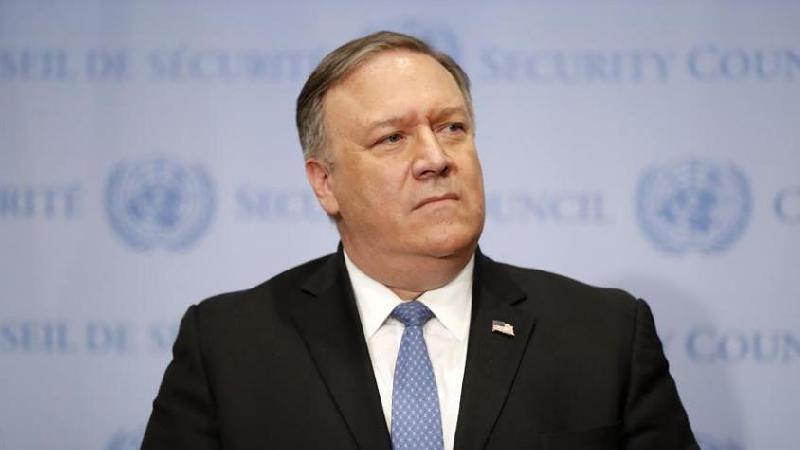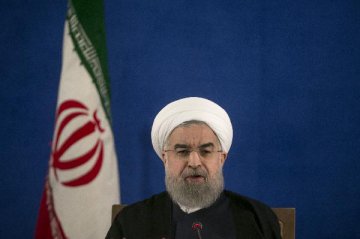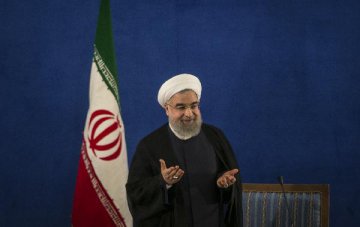
U.S. Secretary of State Mike Pompeo on Wednesday urged the UN Security Council (UNSC) to maintain an arms embargo on Iran scheduled to be lifted in 2020 under the Iran nuke deal, and to take tougher restrictions on Tehran's ballistic missile program.
Speaking at a UNSC meeting on Iran, Pompeo accused the country of having the largest ballistic missile force in Middle East that has threatened many of U.S. allies.
"When we collectively 'call upon' Iran to cease its ballistic missile activity, we must agree to stop it now," Pompeo said, adding Iran's recent test-firing of a medium-range ballistic missile, together with other moves, has proved that "Iran is in open defiance of UN Security Council Resolution 2231."
However, European nations, whose stance on the Iran nuke deal has been in sharp contrast with the U.S., has tried to save the deal.
Eight European nations, including Belgium, France, Germany, Italy, Netherlands, Poland, Sweden and Britain, said in a statement announced after the meeting that "it has been confirmed that Iran continues to implement its nuclear related commitments."
But they warned that Iran's development of "ballistic missile related activities" would violate the UNSC resolutions, calling on Iran "to refrain from such activities, which deepen mistrust and increase regional tensions and are in non-conformity with Resolution 2231."
For his part, Iran's deputy UN envoy, Eshagh al-Habib, reportedly said in the meeting that the United States has an "addiction to sanctions and warmongering," and that Iran was in compliance with its commitments under the landmark deal.
"What we heard today was another series of lies, fabrications, disinformation and deceptive statements by the U.S. It is not unprecedented," al-Habib noted.
On Dec. 1, Pompeo accused Iran of test-firing a medium range ballistic missile "that is capable of carrying multiple warheads" in violation of the UNSC Resolution 2231.
However, Iranian Foreign Minister Mohammad Javad Zarif said that "the issue of missiles has never been subject to negotiations and nothing in Resolution 2231 prohibits Iran" from developing its missile program.
"Our defense doctrine is basically founded upon deterrence and it is defensive, not offensive," Zarif was quoted as saying.
Iran has repeatedly emphasized that its missile program is for deterrent purposes and it will not quit its development.
The Iran nuclear deal was reached in Vienna in 2015 between Iran and the P5+1 (the five permanent members of the United Nations Security Council - China, France, Russia, Britain, the United States - plus Germany).
After leaving the deal in May, the U.S. government on Aug. 7 re-imposed sanctions on Iran's non-energy areas, such as the automotive sector, trade in gold, and other key metals.
On Nov. 5, the U.S. administration snapped back sanctions on Iran's "critical sectors" of energy, shipping, shipbuilding and finance.
The Trump administration has also tried to delegitimize the Iranian government and its regional influence, vowing to press other nations to isolate Iran.
For its part, Tehran has said that the U.S. side is unreliable and it will not talk with Washington.





















Latest comments